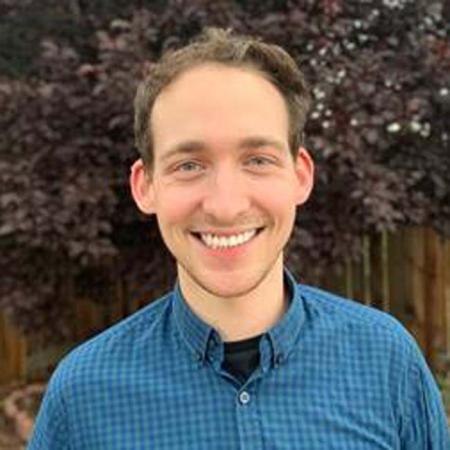
Thomas White
Thomas White
University of Nevada
Thursday, October 28, 2021
12:00pm
Virtual
Abstract: Dynamic plasma properties, such as thermal conductivity and particle diffusion, play a vital role in several areas of contemporary warm dense matter (WDM) research, including astrophysical and inertial confinement fusion (ICF) systems. However, significant variations in predictions and a scarcity of experimental measurements hamper our understanding. I will present an overview of our recent experimental efforts to provide some of the first data points capable of validating state-or-the-art theories and simulations.
I will discuss our Fresnel Diffractive Radiography (FDR) scheme. This new isochoric heating platform employs x-ray phase-contrast imaging techniques to measure changes in density gradients at the interface between two WDM samples with micron-scale spatial resolution. Exploiting the X-ray spatial coherence gives rise to refractive and diffractive features at the interface, allowing for precise measurement of dynamic processes in WDM, including transport properties and equation of state. I will present an overview of experiments at both the Omega Laser Facility and the European XFEL and provide details on future experiments planned for NIF, aiming to measure the evolution of the interface between CH and liquid D2 samples.
Bio: Dr. Thomas White is an assistant professor in the Department of Physics at the University of Nevada, Reno. He holds a master's degree in physics from the University of Bath (2005) and a Ph.D. in Atomic and Laser Physics from Oxford University (2015). For his dissertation, "The Study of High Energy Density Matter through Quantum Molecular Dynamics and Time-Resolved X-ray Scattering," he was awarded the Culham Thesis prize in plasma physics. Before joining the faculty at the University of Nevada, Reno, in 2017, he held postdoctoral positions at Imperial College London and Oxford University.
His research focuses on using high-powered lasers to heat and compress materials to the extreme conditions found in the center of giant planets and during inertial confinement fusion efforts. By recreating these harsh astrophysical conditions on Earth, he measures fundamental plasma properties in regimes where data is scarce. In 2021, Dr. White received the Mousel-Feltner Excellence in Research Award from the University of Nevada, Reno, and the Faculty Early Career Development Award (CAREER) from the National Science Foundation. The latter supports experimental work at some of the world's biggest lasers, including the National Ignition Facility - the world's most energetic laser.
His award includes funding to involve undergraduate students in cutting-edge physics research. He and his students have now conducted experiments at an impressive array of laser facilities, including the Linear Coherent Light Source (Stanford, CA), the European X-ray Free Electron Laser (Hamburg, Germany), and the OMEGA laser system (Rochester, NY). This experimental work is supported by advanced quantum-mechanical simulations that utilize the University's high-performance supercomputer, Pronghorn. He is currently funded by the U.S. Department of Energy, the National Nuclear Security Administration, Lawrence Livermore National Laboratory, and the National Science Foundation.
Dr. White is the Diversity, Equity, and Inclusion Officer on the Intense-light USers Engagement (i- USE) Committee and a founding member of the new Justice, Equity, Diversity, and Inclusion (JEDI) committee within the Department of Physics. He is also a member of the inaugural APS Division of Plasma Physics (DPP) Plasma Pride committee, aiming to promote equity for LGBTQ+ physicists within his profession. In addition, he sits on the American Physical Society DPP 2021 Program Committee, the Jupiter Laser Facility Steering Committee, and is a member of the High Energy Density Science Association (HEDSA) steering committee, which advocates and petitions congress for high energy density research